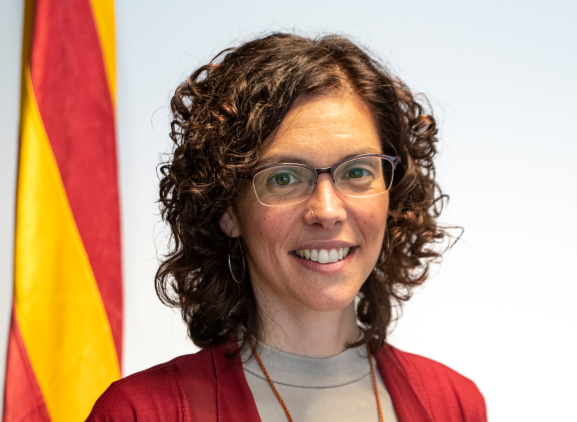1. What is your connection with the Digital Rights Manifesto?
- From the Direcció General de Societat Digital, we have been working for years within the framework of the Catalan Charter for Digital Rights and Responsibilities in order to incorporate the voice and perspective of minors with everything that has to do with ensuring the rights and digital training of any person. In this sense, one of the chapters of the Charter tried to reflect these demands of childhood and adolescence. So, a pilot was made and several working groups were promoted with a hundred creatures of different ages, who expressed their willingness to contribute their visions. Consequently, it was decided to scale this pilot to nearly eight hundred people from all over the territory. This is where, together with the Fundació Ferrer i Guàrdia, we prepare the Report on the Digital Rights of Children and Adolescents, which is the seed of the Manifesto.
2. After the presentation of the Report on the Digital Rights of Children and Adolescents, the next step was the creation of the Digital Rights Manifesto, what is the purpose of this Digital Rights Manifesto?
- The Report on the Digital Rights of Children and Adolescents identifies attitudes, perceptions and values, as well as names situations that children and adolescents highlight, in order to be able to later elaborate this call, that is to say, land these situations in a series of demands that take the form of the Digital Rights Manifesto. In essence, the main aim of the initiative is to collect the voices of the creatures.
3. So, what are the concerns of children and teenagers when it comes to online safety?
- It turns out that when we talk about online safety sometimes the adult view does not match the view of the creatures, that is to say, the concerns of adults do not match the concerns of children or teenagers. For example, when we talk about online safety, it's very different to do it with a teenage girl who surfs social media and has normalized some intrusion into her private life by unknown people than with a guy who we're likely to meet in gamer spaces or game spaces and surely the security situations you will experience will perhaps be related to issues related to information security or data security. On the contrary, if we talk to smaller creatures, one of their important concerns is precisely that families do not overexpose them so much to the digital world.
4. At the end of 2023 or the beginning of 2024, the Manifesto will be presented, what route will it take?
- The Digital Rights Manifesto will be presented in the spring of 2024. The idea is that, in addition to presenting the Manifesto, these contents will be available for consultation and will be a document that people can adhere to. The intention is that this Manifesto serves to open conversations in different environments, family, educational, learning or education in leisure, and here we count on the involvement of everyone.
5. What involvement should educational agents have in front of this Manifesto?
- Educational agents can be these conversation starters. We hope that this Manifesto of Digital Rights will be a useful educational material to be able to fully address the digital rights of minors.
6. From the Xarxa Punt TIC, what relationship can be established with this initiative?
- There are many possibilities to collaborate with the Manifesto, from contributing to the dissemination with the creation of communication materials to publicize this initiative to the possibility of organizing some kind of workshop or pedagogical material that can be land in specific sessions with the ICT Points who wish to and who can accompany organizations and educational agents in this drive to publicize the Manifesto.
7. In the future, could the foundations be laid to create a law on children's digital rights?
- The first step is to effectively create a normative framework of reference such as the Catalan Charter for Digital Rights and Responsibilities. The Charter not only tries to pay attention to the rights of children but also to those of adults and not only in terms of rights but also in terms of responsibilities, because the digital society is a matter of co-responsibility. In the end, creating a law is a much more complex matter than a regulatory framework, as it has to do with powers. However, going forward, we have a common challenge, all the administrations that have legislative capacity, which is that we have a private sector that in the end is the one that is designing these platforms and, therefore, we need to have a regulatory framework like it is now being tried to boost fortunately from Brussels. Although I think it will still be difficult for us to see regulation, because it depends on many international balances, I think we are in a context of opportunities and we are seeing it in the field of artificial intelligence, where a context is being cooked very interesting in terms of possible international regulation. In fact, the United Nations has created an international advisory council with a view to global governance, where 38 specialists from industry, public sector and academia participate. Surely, this is the bravest experience that has been seen so far to get the whole globe to agree. We, with the Manifesto and within the framework of the Catalan Charter for Digital Rights and Responsibilities, are trying to position ourselves as an administration that can participate in this debate and dialogue.



